2023 COEDI Awards Honor Equity, Diversity, and Inclusion Champions on Campus
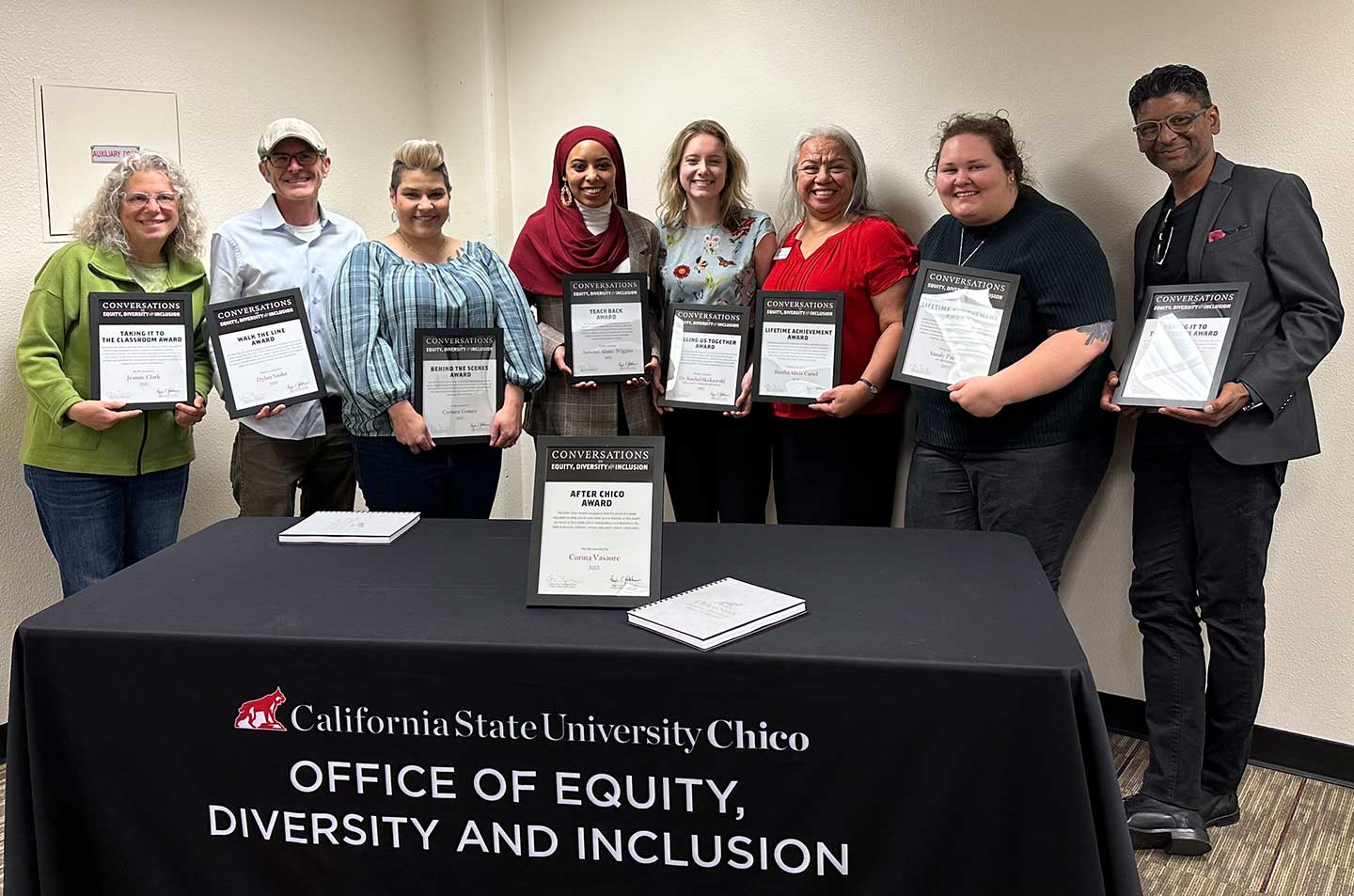
Chico State’s deep commitment to equity, diversity, and inclusion is propelled by champions who lead transformational programs, guide day-to-day efforts, and continue to push for positive improvements. In May, a group of staff, faculty members, and students were honored for their contributions and dedication during the 15th annual Conversations on Equity, Diversity and Inclusion (COEDI) Awards.
Faculty and staff have long hosted a series of discussions titled Conversations on Equity, Diversity and Inclusion that focus on the complexities of group and individual identities. Through education and conversation, the series aims to expose and treat the various ills reflected on our campus and in our community—xenophobia, homophobia, racism, sexism, classism, ignorance, apathy, etc.—as well as celebrate our differences in hopes of bringing about enlightenment, understanding, and acceptance.
Every spring, the COEDI planning committee, the Office of Equity, Diversity, and Inclusion, the Department of Multicultural and Gender Studies, and the Gender and Sexuality Equity Coalition honor those who exemplify the ideals of the series. The 2023 awards ceremony was held in person at the Bell Memorial Union (BMU) for the first time since the COVID pandemic.
Promising Newcomer Award
Enrique “Ricky” Galvan
This award is presented to an individual whose fresh perspective and energy galvanize campus diversity work and facilitate new approaches to old problems. The award honors the newcomer’s vision and invites a sustained commitment to its realization.
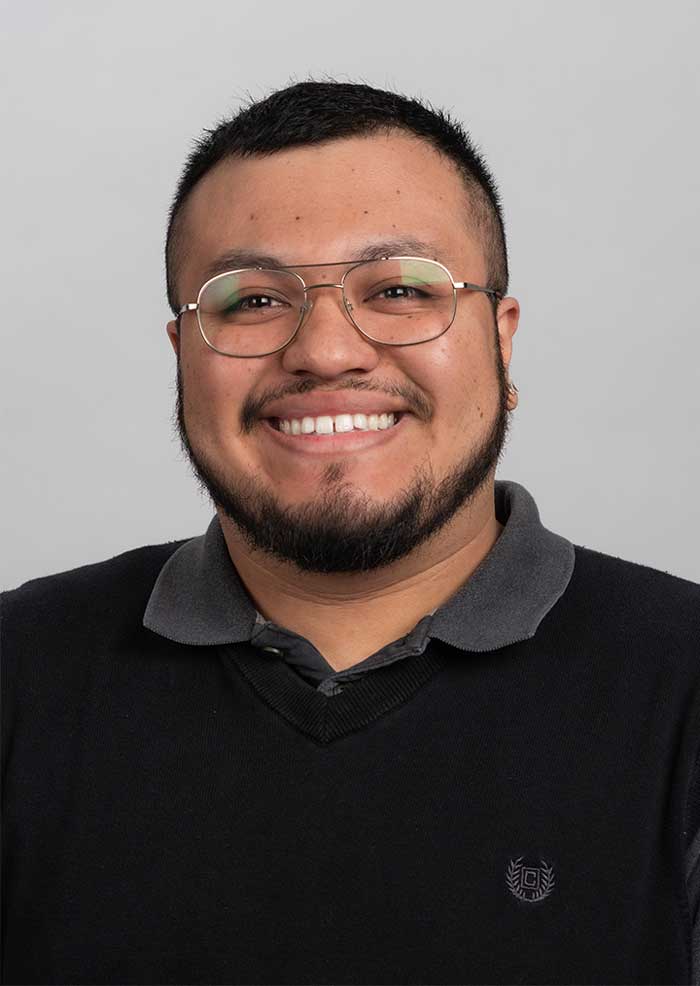
Enrique “Ricky” Galvan doesn’t take himself seriously, but he approaches every day in the office with a deep sense of purpose.
With a sunny disposition and a dad joke at the ready, Galvan fosters a welcoming environment as a student success specialist in the Student Success Center. His steadfast support of first-generation and historically underserved students at Chico State is evident in his work with the center, as a board member for the 1st Generation Faculty and Staff Association, member of North State Roots and the Chicano / Latino Council, and a volunteer for Basic Needs Hungry Wildcat Pantry.
Galvan (Psychology, ’19; MA, Social Science, ’21) is also a mentor, friend, and cheerleader to countless students—some who he remains in contact with years after they graduate.
“His eagerness to help, positive attitude, and care for our students, staff, and faculty have been so uplifting,” said Path Scholars advisor Dawn Carini, who nominated Galvan.
Raised in Gridley in a low-income, immigrant household, Galvan can connect with the students he helps support, he said. He knows the challenges that come with being a first-generation student. He said because of his experience and drawing inspiration from his service-minded parents, he feels a responsibility and duty to help others facing the same obstacles he did.
“Being a proud Latino, being a proud first-gen graduate, I have to help out the next person so they can achieve even more than I did,” he said.
Galvan, who keeps his door literally and figuratively open for students seeking guidance, said it is rewarding work helping students foster self-efficacy and create a sense of belonging on campus.
“After seeing how much of an impact I make on students, I know this is what I’m called to do,” he said. “This is my dream job.”
Taking it to the Classroom Award
Jeanne Clark
Individuals who address diversity issues in the classroom often must deal with sensitive and challenging subjects, resistant or apathetic students, and/or professional scrutiny. It is a daunting task that many choose not to address. The Taking It to the Classroom award recognizes an outstanding faculty member who possesses the courage and creativity required to successfully engage diversity issues in the classroom.
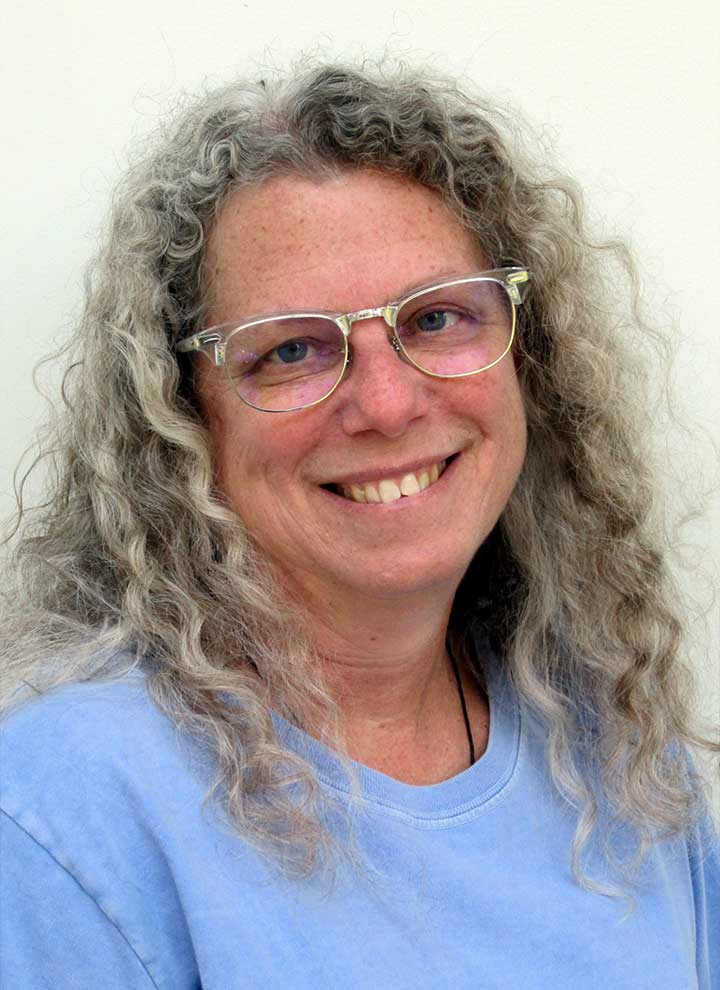
For 23 years, English professor Jeanne Clark has taught courses in creative writing, poetry, and American literature. In challenging the traditional literary canon, she regularly introduces her students to authors from underrepresented groups to showcase their unique perspectives, voices, and lived experiences. And from these works, important conversations about race, gender, and identity emerge.
In her creative writing classes, Clark works exceedingly hard to diversify the course readings and assignments, ensuring that every one of her students sees themselves reflected in the work. Her thoughtfully curated course reading lists include award-winning authors from traditionally underrepresented communities such as Ross Gay, Sean Hill, Camille Dungy, Aimee Nezhukumatathil, Natalie Diaz, Alberto Ríos, and Paul Tran.
Clark took this a step further when she brought award-winning Hmong poet Mai Der Vang to campus several years ago. This was a significant achievement for our campus community, especially considering that the Hmong American literary tradition is still in its nascency, with its first works published in the early 2000s. That did not dissuade Clark from inviting Vang, a finalist for the 2022 Pulitzer Prize in Poetry, to our campus—both to connect with the local Hmong community and to introduce the author to those who may not have been familiar with her work.
College of Humanities and Fine Arts Dean Tracy Butts said through acts like bringing in authors who connect with underrepresented groups on campus, Clark is steadfastly trying to build a tradition of her own here—one which explodes the literary canon and holds spaces for the multitude of voices both on our campus and in our country.
“As professor of American literature and creative writing, the work Dr. Clark is doing in the creative writing classroom is important because many of our students come to us having never been exposed to authors whose lives and experiences mirror their own,” Butts said. “By ensuring that all of her students see themselves reflected in the curriculum, she’s widening their exposure to the myriad voices who have helped shape the world, while also creating space for them to dream, to reimagine the world, and develop a voice to tell those previously untold stories that folks want to read.”
Behind the Scenes Award
Carmen Gomez
Just as in a movie or in theatre, much of the diversity efforts, the real work, is conducted and maintained behind the scenes, out of public view. This award honors the individual behind the scenes, working diligently and often without recognition to ensure that the show goes on seamlessly and successfully.
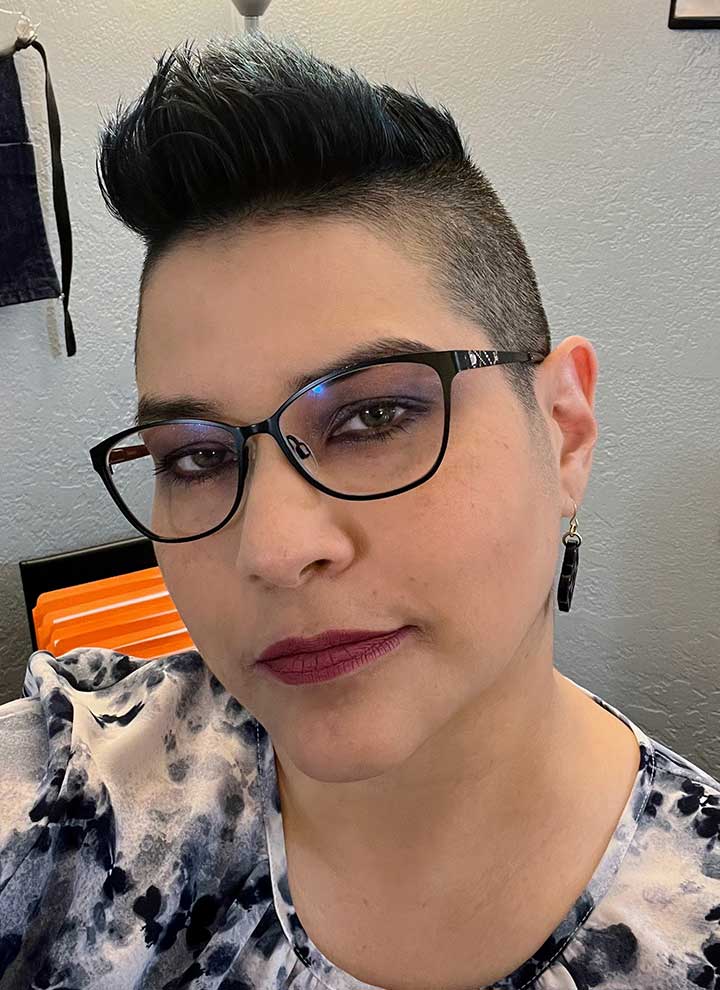
From lectures to concerts and theater productions in multiple venues around campus, College of Humanities and Fine Arts Production Manager Carmen Gomez works up to 150 events every academic year. And she knows that if her job is done correctly, no one knows she’s there.
Gomez has been managing Chico State performances since January 2017 and for any type of performance to be successful—her work often begins up to 18 months prior to an event. Whether it’s discussing event expectations with a speaker, director, or musician, managing budgets, or planning the timeline and staffing—her job is critical. She oversees about 40 student employees every year, and it is her mission to lead the way with compassion, kindness, and representation for all groups that both perform and appreciate the arts at Chico State.
The Department of Music and Theatre Arts has a self-appointed mandate in which at least 50 percent of its productions every year will showcase underrepresented groups. Gomez is proud to report that all four shows for the 2023–24 season intentionally feature storylines, characters, or authors from marginalized communities. As a woman of color herself, Gomez takes her role very seriously, providing a stage (in a very literal sense) for equity, diversity, and inclusion efforts so that those on stage can confidently speak their truth.
In May, Gomez managed five multicultural graduation celebrations and department ceremonies: Veteran, Black, Asian and Pacific Islander, Native American, and Lavender.
“Regardless of how you identify, you have a voice that is unique to you,” she said. “If I have the ability to help you get that voice out, that is not only my privilege, it is also my responsibility.”
Pulling us Together Award
Rachel Skokowski
This award is presented to the organizer of an event that was noteworthy for drawing people together to take a bold step toward social change. The event may involve teaching the campus community eye-opening lessons about diversity issues, galvanizing a response to a particular social justice issue, or representing those who are often marginalized in U.S. society.
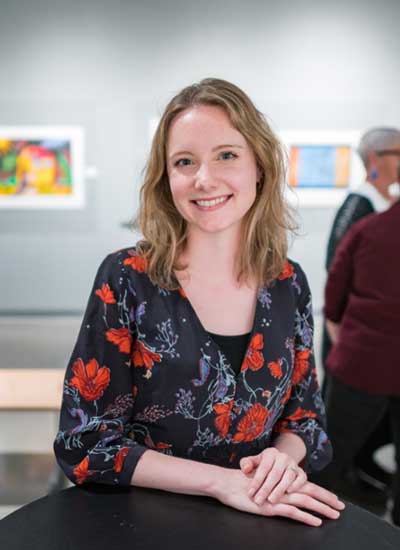
Rachel Skokowski, the new curator for the Janet Turner Print Museum, isn’t afraid of tough conversations. In fact, she encourages it.
“The art we exhibit engages with political issues, economic issues, and social issues, so when people come into the gallery they get a fresh, often unfamiliar perspective,” said Skokowski. “Hopefully the museum is a space for dialogue and debate.”
In her short time on campus, Skokowski has worked intentionally to foster and expand the existing equity, diversity, and inclusion practices of The Turner while simultaneously developing new exhibitions and relationships that speak to Chico State’s increasingly diverse population.
For Skokowksi, representation is key. “Featuring diverse works and bringing people to campus that show students artists that look like them is incredibly important,” she said.
In the fall, the museum hosted Making her Mark: Women Printmakers‚ which celebrated groundbreaking women artists and investigated the links between feminism and activism, women’s work, and artistic labor. In the spring, The Turner welcomed the Documenting Dreams: Juana Estrada Hernandez and Humberto Saenz exhibition in which the artists weaved their life experiences as Mexican-American immigrants into their work. The exhibition offered a powerful reflection on the current border crisis and its catalog was written in both English and Spanish. The Turner also hosted the Cross-Cultural Leadership Center Women of Color Unity Brunch, as well as an event for Cesar Chavez Day.
“Our collection is still living and growing,” said Skokowski. “We’re constantly looking for ways to bring in artists and work that hasn’t been represented.”
She looks forward to working with other groups on campus to help spread the word that The Turner is open to everyone.
“One of our biggest issues is that people don’t necessarily know about us or they don’t think that it’s a space for them,” she said. “We want to change that and make everyone feel welcome.”
Lifetime Achievement Award—Posthumous
Sandy Parsons
Understanding diversity is the work of a lifetime and helping others to understand it is the work of an extraordinary lifetime. This award is presented to an individual who has brought the campus closer to its vision of inclusiveness through her or his cumulative daily efforts to promote understanding and collaboration across lines of gender, race, culture, class, and sexuality.
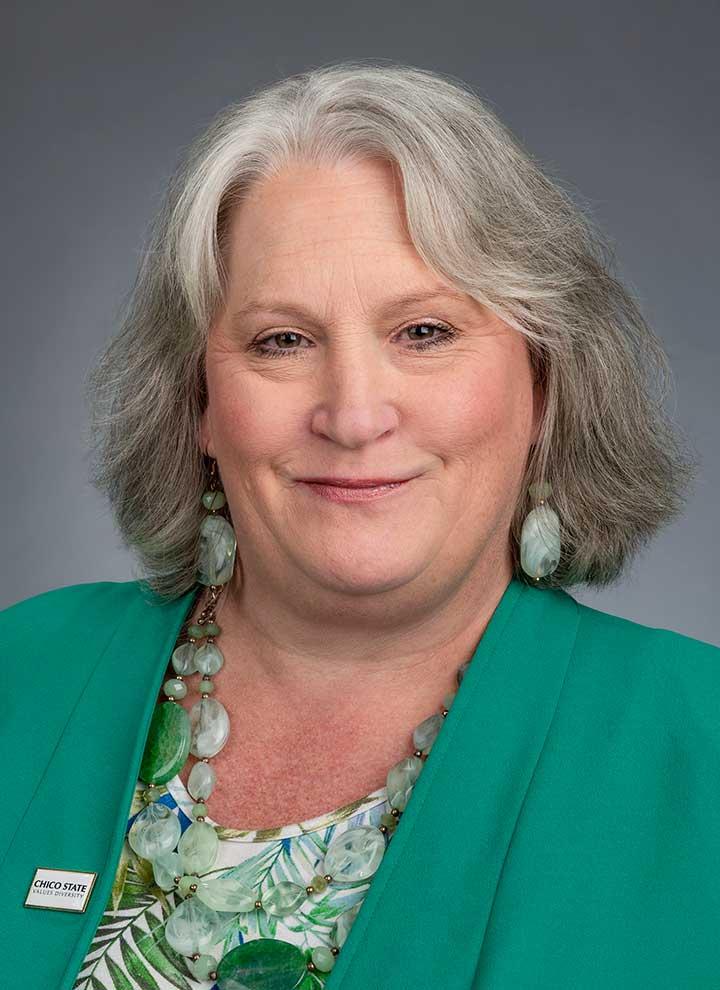
Sandy Parsons had already devoted more than 20 years of her life to working with individuals with disabilities before she was hired at Chico State in 2006. She would go on to spend another 15 years dedicated to advancing equity and student success for all students while serving as a compassionate advocate for anyone in need of additional support or encouragement.
Parsons began her tenure as the director of Disability Support Services, the name of which she quickly changed to Accessibility Resource Center (ARC) to remove its stigma and focus on inclusion. Within five years, she was appointed the Americans with Disabilities Act (ADA) coordinator. In 2015, Parsons was promoted to director of Student Judicial Affairs, now Student Conduct, Rights, and Responsibilities, and became the chair of the Campus Assessment, Response, and Education Team. As her responsibilities grew, she held the roles of dean of students and interim and then acting vice president for Student Affairs.
“Sandy was a pillar in the disability community, advocating for and promoting the rights of individuals with disabilities. She was a mentor, advocate, and visionary in providing quality services to clients, students, and our campus community,” said Charlene Corder-Vicino, accessibility advisor and counselor in the Accessibility Resource Center, and friend of nearly 30 years. “I remember her saying that the way she could really make a difference in the lives of others was to establish policies that were impactful and meaningful—to do the right thing even if it is difficult.”
Parsons’ work, which ranged from student conduct and accessible technology to Title IX violations, earned praise both on and off campus, including recognition from the Office of the Chancellor. Her impact as a person, however, left an equal impression, as she brought humor, candor, and care to all her interactions.
“She always found a way to make everyone laugh and feel affirmed,” said Holly Hunt, director of the ARC and her nominator. “I wanted to honor her legacy of inclusion. She will continue to make an impact on students and colleagues for years to come.”
Parsons passed away in 2021. Her daughter, Emily Hunt-Parsons, accepted the award on her behalf.
Lifetime Achievement Award
Bertha Alicia Curiel
Understanding diversity is the work of a lifetime and helping others to understand it is the work of an extraordinary lifetime. This award is presented to an individual who has brought the campus closer to its vision of inclusiveness through their cumulative daily efforts to promote understanding and collaboration across lines of gender, race, culture, class, and sexuality.
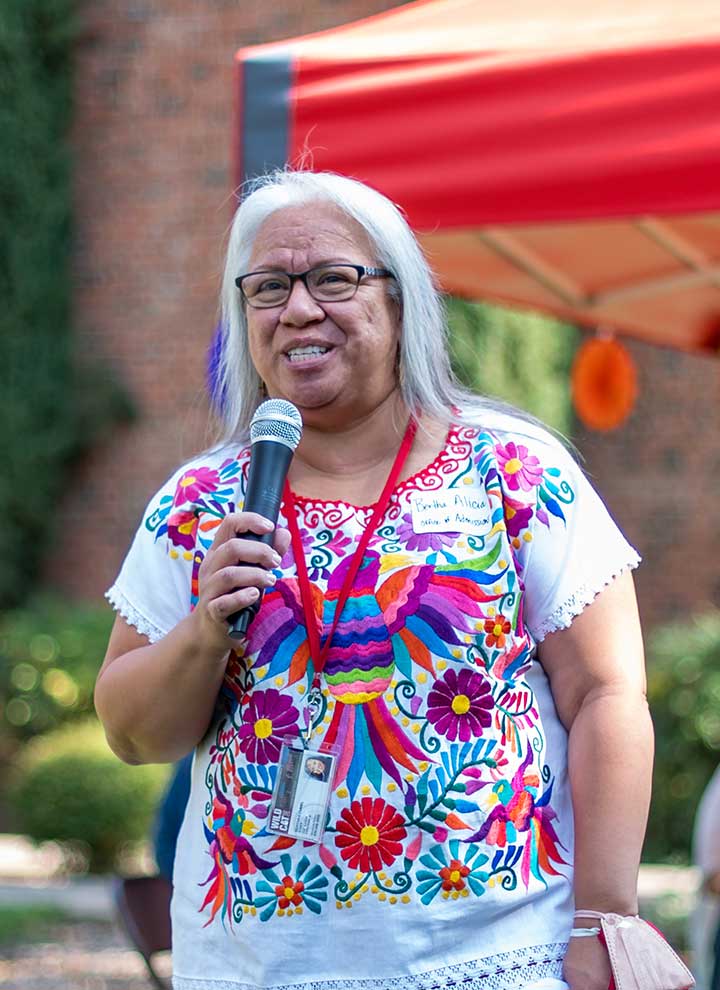
Bertha Alicia Curiel’s dedication to student success has been the hallmark of her decades-long career at Chico State. An alumna with degrees in psychology and Spanish (‘97), and a master’s degree in psychology (‘05), she began in the Office of Admissions, working directly with students and their families to make their transition to academic and campus life smoother.
From a place of empathy and kindness, Curiel has made the enrollment of all students, but especially those from historically marginalized groups, her top priority. This was why she was sought out for a role within the Strategic Enrollment Committee (SEC), which was initially funded to focus on enrollment and meeting strategic goals for the campus related to students of color.
At SEC, she supported and developed new and continuing diversity and equity initiatives involving outreach, recruitment, enrollment, and retention efforts. This includes the development and facilitation of Spanish-language informational sessions during Chico Preview Day and Admitted Student Preview Day (now, Choose Chico), and many others.
Curiel also became the Chico State representative to engage with and be an active participant in the Hispanic Association of Colleges and Universities. She has been a Faculty/Staff Individual Member of the organization for over a decade and continues to advocate for students on Capitol Hill when meeting with members of Congress.
After 10 years with the Office of Admissions, she applied for an opening in the Chico Student Success Center (CSSC), working with now-retired director Gary McMahon. Over the next decade, she was the driving force behind their establishment of over 50 partnerships with high schools throughout the state, the Advancement Via Individual Determination Program, and other educational organizations and programs, as well as hundreds of enrolled students every year.
According to Curiel, she is resolute in “being part of the solution” when it pertains to advocating for student access to higher education, especially for those who have traditionally been underserved by the same. “I am proud of being a Chico alum and I believe that it’s now my privilege, honor, and my responsibility to give back and help others achieve their educational goals.”
Curiel’s legacy on campus is still in the making, as she was recently reassigned to the Office of Admissions as its Equity Initiatives Coordinator, leveraging her skills, experience, and passion to ensure generations of students continue to find a home and success at Chico State.
The After Chico Award
Corina Vasaure
The After Chico Award recognizes that the proof of a good education is what you do with what you’ve learned. With this award, we honor a Chico State alum’s outstanding contributions in the field of diversity activism, service, education, and/or celebration.
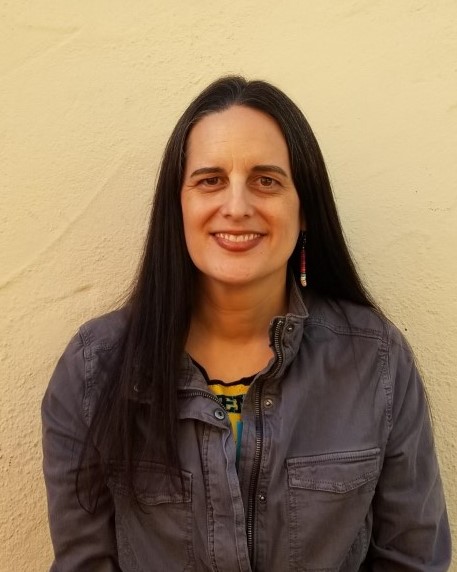
Corina Vasaure (Multicultural and Gender Studies, ’01), an instructor at Hartnell College in Salinas, is embracing equity, diversity, and inclusion in her class and helping produce future generations of scholars and activists through her teaching of ethnic studies.
With compassion and purpose, she guides her students as they discuss challenging topics and learn to understand institutional systems in society—whether it be in education, housing, jobs, criminal justice, or healthcare—that affect BIPOC communities. She also empowers her students to become critical learners by fostering a safe space for conversation and encouraging them to be active participants in the classroom.
“I share with my students that this is a space where it’s not about me in front of the classroom teaching you,” she said. “We’re going to be in a space where we’re learning from each other.”
Raised in the Central Valley, Vasaure was always inquisitive about cultures and it was a Chicano studies class taught by the late Chicano poet Andrés Montoya at Fresno City College that sparked her interest in the topic.
“It hooked me in,” she said. “Even though I come from a Mexican American background, this was something not taught in high school or junior high. From there, I knew that this is what I wanted to do.”
Vasaure earned her MA in ethnic, cultural minority, gender, and group studies from Claremont Graduate University. She previously taught at Chabot and Ohlone colleges. Before stepping into the classroom, she spent 13 years working in nonprofits doing grassroots organizing. She is a member of the Northern California Foco (chapter) of the Association for Chicana and Chicano Studies and was recently elected regional representative.
“Corina is the best of what a Chico State education in diversity, equity, and inclusion can be,” said Susan Green, chair of the Department of Multicultural and Gender Studies.
Walk the Line Award
Dylan Saake
The Walk the Line Award recognizes that the work to achieve social justice is both demanding and risky, and often results in excessive scrutiny and burn-out from juggling multiple roles.
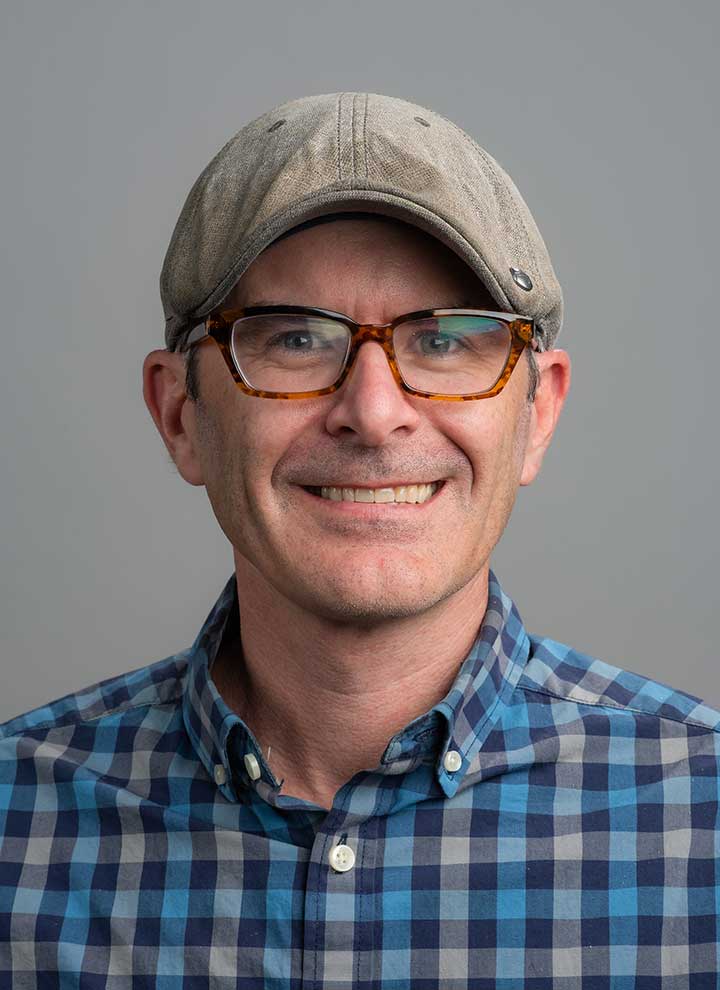
Dylan Saake has one of the most challenging jobs on campus. As the director of labor relations and compliance, Chico State’s official Title IX coordinator, and a human resources administrator, he is often the first person to know about a significant dispute that requires empathy, trust, and due process to resolve—which can be frustrating to people observing things from the outside. In every case, Saake is charged with honoring the privacy of all involved. This often comes at a great personal cost in the world of online arbitration.
Balancing the weight of this work, Saake’s grounding belief in the rights and dignity of all people keeps him focused on taking things one day and one problem at a time. “The work is hard,” Saake said. “And almost anytime we’re investigating an incident, at least one person always thinks we did it wrong. But we try to just stay focused on our integrity and ethics, through everything that we’re doing so that can we hold our heads up and rest assured that we’re doing our best to do the right thing, whatever the cost.”
Through its many challenges, Saake said that his team continues to be the best part of his job. “Even in the darkest of moments, I look around and I am grateful for the people I get to work with,” Saake said. “They are committed to the work and trying to do the best they can.”
Saake came to Chico State a decade ago from a legal background, having previously worked with California Rural Legal Assistance, a nonprofit law firm that provides free civil legal services to low-income residents of California’s rural counties. His lifelong dedication to justice work was instilled in him as a child by his “hippy parents,” who were active in the civil rights movement. He brings his insight and passion to campus, advocating for programs and funding to assist students with a variety of legal matters.
Next year, one his Saake’s long-term goals will be reached when Chico State hires its inaugural restorative justice expert to help implement programs and practices that will help respond to incidents of bias on campus.
Teach Back Award
Autumn Alaniz-Wiggins
The Teach Back Award recognizes the fact that while students most often learn from their professors, they also teach their instructors and peers. With this award, we honor one of our students who has consistently been active either inside or outside of the classroom and contributed to diversity education on campus.
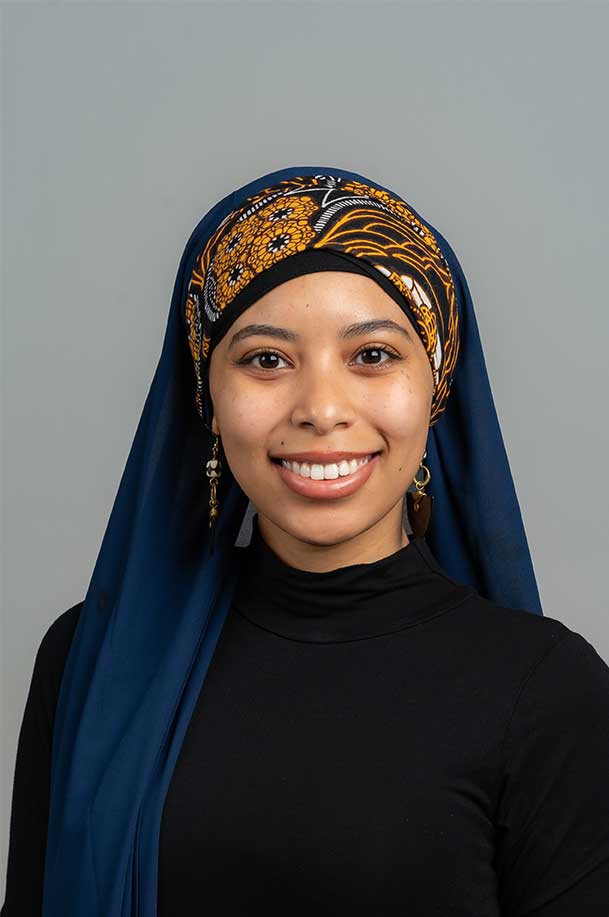
Incoming Associated Students President Autumn Alaniz-Wiggins campaigned on her ability to uplift the voices of students from underserved and minority communities. Given her track record, experience in AS government, and immense contributions to campus-wide EDI initiatives, it is no surprise that she was elected.
Alaniz-Wiggins is wrapping up her term as Associated Students’ Director of Social Justice, a role in which she acted as a liaison between students and the University, and oversaw matters regarding shared governance, transparency, free speech, and social justice. During her term, she created a monthly tradition of having identity-based creative displays in the BMU, implemented programming to bring a diverse population of students to The Well, and brought Footsteps to Freedom CEO Hardy Brown to Chico State to share his collection of Black artifacts and to share the story of slavery, survival, and resilience with students.
What makes her assent to AS President even more remarkable is that Alaniz-Wiggins took leave from Chico State and nearly didn’t come back after three semesters away.
“I’m not supposed to be here. I’m a first-generation student who stepped away to travel, work and re-focus,” she said .“When I finally returned to Chico State, I decided I wanted to be as involved as possible and make a difference.”
Since returning in the spring of 2020 to double major in multicultural and gender studies and sociology, she has lived up to her personal commitment. Since 2022, Alaniz-Wiggins has served in the Black Peer Mentor Program at the student success center, where she refers students to resources, monitors students’ progress, and coordinates outreach. She is the student representative on the University Diversity Council (UDC), has collaborated with CCLC, GSEC and on-campus clubs such as RAICES and BSU, and because of her EDI experience, played a key role on the hiring committee for the University’s new Chief Diversity Officer.
Alaniz-Wiggins also found time to volunteer on the Student Philanthropy Council and recently presented at the Women Like You Symposium in March 2023.
“This award means everything to me because it is the first award I’ve won in college,” said Alaniz-Wiggins. “It also provides momentum heading into next year where I plan to work with the CSSA (California State Student Association) on policy that positively affects students and be a voice for those that don’t have a platform.”
Taking it to the Streets Award
Professor Rouben Mohiuddin and student interns
This award highlights a group’s or individual’s timely response to an event or issue of local, national, or global significance. We particularly want to honor students, staff, or faculty who have provided a direct service to communities or individuals impacted by the topic.
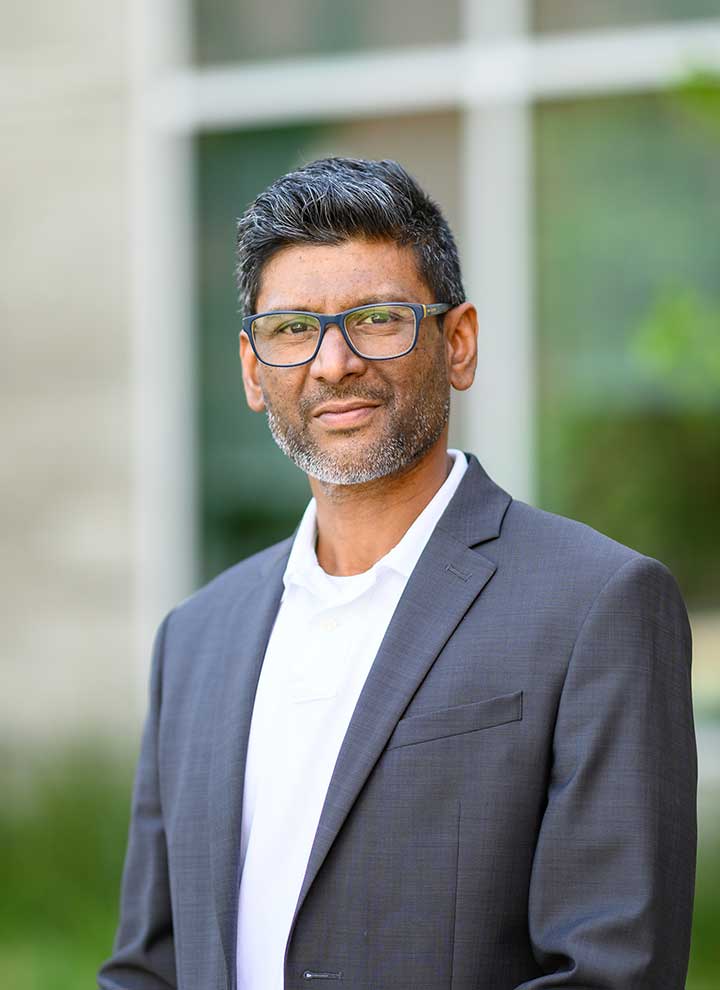
In the aftermath of the Camp Fire, Professor Rouben Mohiuddin saw an opportunity for interior architecture students to serve the residents of Paradise who chose to rebuild. Under Mohiuddin’s guidance, a group of student interns collaborated with the Rebuild Paradise Foundation and industry professionals to develop low-cost floorplans that were code-compliant and available for builders for free through the town’s pre-approved Residential Floor Plan Library. This enabled homeowners and developers to access them and begin construction without the costly and lengthy permitting process.
For his timely response to both issues and the way he and his students provided direct services to those impacted by the Camp Fire, they were all honored with the Taking it to the Streets Award. Following the ceremony, Mohiuddin explained that his previous experience in the professional sector left him wanting to do more community-based work, something he’s been able to do since he started teaching at Chico State.
“I believe good design should be accessible for everyone, and that’s what I’m proud we were able to accomplish with the Rebuild Paradise project,” Mohiuddin said.
Mohiuddin and his students worked hard to ensure that the hearts and souls of the people of Paradise were represented in their designs. They spent time listening to them, empathizing with them, and then applying their feedback. In the process, they discovered that they were doing more than designing.
“This is giving people hope,” said Charles Brooks (Business Administration, ’03), founder and board member of the Rebuild Paradise Foundation.
The final designs range from 890 to 2,100 square feet, feature one to four bedrooms, and are styled like either a mountain Craftsman or stucco cottage. Some include the option for an attached or detached garage. The homes are not just functional—they are beautiful.
Their efforts paid off even more when Habitat for Humanity optioned the 960-square-foot cottage design known as “The Flume” for a master-build project, where dozens of homes in a single neighborhood are being built with the same floorplan.


